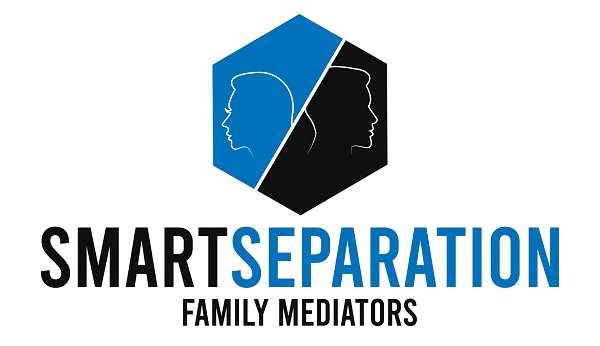Step 1 – Understand the Role of a Toronto Family Mediator
Preparing for family mediation in Toronto starts with understanding who a family mediator is—and what they are not. In Ontario’s family law system, mediation offers a collaborative way to resolve disputes outside of the courtroom. But to make the most of it, both parties need to clearly understand the role of a Toronto family mediator.
A Neutral Third Party—Not Your Lawyer
A Toronto family mediator is a neutral facilitator, not a legal advisor or advocate for either side. Their primary role is to help both parties communicate effectively, clarify issues, and explore options to reach a mutual agreement. While many mediators have legal training or backgrounds in social work, they do not provide legal advice or make decisions for the parties involved. If legal guidance is required, each party should consult with their own family lawyer—preferably one familiar with mediation and Ontario family law.
Facilitating Constructive Dialogue
Toronto family mediators are trained to keep conversations respectful and productive, even when emotions are running high. They use tools such as:
- Active listening and rephrasing to ensure both parties feel heard
- Issue identification to focus the conversation on what really matters (e.g., parenting time, spousal support, property division)
- Brainstorming solutions that work for both parties and their children
- Conflict resolution techniques to help parties move past impasses without escalating tension
By promoting effective communication, mediators help participants focus on shared goals—like the well-being of their children or fair financial arrangements.
Mediation vs. Litigation or Arbitration in Ontario
In Toronto and throughout Ontario, mediation is often viewed as a preferred alternative to litigation. Here’s how it compares:
| Process | Who Decides? | Cost | Timeframe | Privacy |
| Mediation | The parties (with help from mediator) | Typically more affordable | Flexible, often faster | Private and confidential |
| Litigation | A judge | Expensive (lawyers, court fees) | Often lengthy, court-controlled | Public record |
| Arbitration | A private arbitrator (like a judge) | Varies, often costly | Can be quicker than court | Confidential |
Step 2 – Get Clear on What Needs to Be Resolved
Before you walk into your first session with a Toronto family mediator, it’s essential to understand what you want to achieve. Mediation works best when both parties come prepared with a clear sense of the issues that need resolution. This step helps you avoid getting overwhelmed and ensures the conversation stays focused and productive.
Identify the Key Issues
Every separation or divorce is unique, but certain topics are commonly addressed during family law mediation in Toronto. These may include:
- Parenting Time (formerly “access”): How will time with the children be divided?
- Decision-Making Responsibility (formerly “custody”): Who will make decisions about the child’s education, health, religion, and extracurriculars?
- Child Support and Spousal Support: How much financial support will be paid, by whom, and for how long?
- Division of Property and Debts: How will assets like the matrimonial home, vehicles, RRSPs, and personal property be divided under Ontario’s Family Law Act?
Write Down Your Goals and Concerns
Before meeting with a Toronto family mediator, take time to write down what matters most to you. This could include:
- Maintaining stability for your children
- Keeping the family home
- Minimizing future financial disputes
- Preserving a respectful co-parenting relationship
Also list any concerns you may have, such as:
- Your ex’s financial transparency
- Safety or emotional well-being of the children
- A history of conflict or poor communication
Prioritize Your Issues
Not every issue carries equal weight. A helpful strategy is to rank your concerns in order of importance, so you can:
- Stay focused during mediation sessions
- Know where you’re willing to compromise
- Avoid spending too much time on less significant matters
Step 3 – Gather and Organize Your Financial Documents
Why Financial Disclosure Matters in Mediation
In family law mediation, especially in Toronto, financial transparency isn’t just helpful—it’s legally expected. Without complete and honest disclosure, agreements may be challenged or even overturned later in court. A Toronto family mediator relies on both parties providing reliable information so they can help facilitate a fair discussion around support and property division.
Full disclosure:
- Ensures decisions are based on facts, not assumptions
- Prevents misunderstandings or mistrust between parties
- Reduces the risk of one party feeling pressured or disadvantaged
- Helps your agreement stand up in court, if needed
What Documents to Bring
Before your first mediation session, prepare a folder with organized financial documentation, including:
- Recent pay stubs and proof of other income (e.g., rental income, bonuses)
- Tax returns and Notices of Assessment for the last three years
- Bank statements (chequing, savings, joint accounts)
- Credit card statements and other liabilities
- Mortgage and line of credit balances
- RRSPs, pensions, and investment accounts
- Property appraisals or real estate documents
- Business financials if you or your spouse own a company
If you’re unsure what’s required, many Toronto family mediators provide a checklist ahead of time.
Financial Disclosure Under Ontario Family Law
Under Ontario’s Family Law Act, full and honest disclosure is a legal requirement in separation and divorce proceedings. Courts can set aside a separation agreement if one party withheld material financial information. Mediation, while private and voluntary, follows the same principle—without full disclosure, the process may stall or fail entirely.
Some mediators may ask you to complete a Form 13.1 Financial Statement, especially if spousal support or property division is being discussed. This form is commonly used in family court and helps ensure consistency and clarity in the financial picture presented by each party.
How Documentation Builds Trust and Saves Time
Organized and accurate financial records:
- Create a baseline of trust, even in high-conflict situations
- Allow the mediator to focus on solutions rather than clarifications
- Minimize unnecessary delays, making sessions more cost-effective
- Help both parties feel informed and empowered to negotiate fairly
Step 4 – Consider Your Children’s Needs First
Child-Focused Mediation Is the Standard in Toronto
Under Ontario family law, the best interests of the child are the guiding principle in any parenting arrangement. A Toronto family mediator is trained to help parents work together to create stable, respectful, and practical plans that support their child’s emotional and physical well-being.
Mediators do not make decisions for you but will redirect the conversation if it becomes too parent-focused or adversarial. Instead, they’ll help both parties look at the bigger picture: what arrangement will support your children’s stability, growth, and relationships with both parents?
Think Through Schedules, Routines, and Emotional Needs
Before mediation, take time to reflect on your child’s:
- Daily routine (school, meals, bedtime, homework)
- Extracurricular activities and friendships
- Emotional needs and temperament
- Health care requirements
- Relationships with extended family
You’ll be expected to work with the other parent to build a realistic parenting plan that covers things like:
- Regular parenting schedules (weekdays, weekends, holidays)
- Drop-off and pick-up arrangements
- Communication methods for co-parenting
- Emergency protocols and medical decisions
Be Ready to Discuss Parenting Plans and Communication
Toronto family mediators often ask parents to begin drafting a Parenting Plan—a document that outlines how you’ll share responsibilities and decision-making. You don’t have to arrive with a full draft, but you should come prepared to:
- Discuss parenting roles with openness and respect
- Suggest possible schedules that work for both parties and the children
- Explore how you’ll handle disagreements or changes in the future
Co-parenting isn’t just about logistics; it’s also about communication. Mediators may introduce strategies like:
- Using parenting apps for shared calendars
- Setting boundaries around conversations
- Establishing check-in points to evaluate how the arrangement is working
How Mediators Put Children First
A skilled Toronto family mediator will:
- Ask child-focused questions (e.g., “How will this affect your child’s school routine?”)
- Encourage parents to see things from the child’s perspective
- Help reduce conflict that could negatively impact the child
- Emphasize long-term cooperation over short-term wins
They may also screen for concerns like emotional abuse, exposure to conflict, or unrealistic parenting expectations—ensuring the plan prioritizes safety and developmental needs.
Step 5 – Know Your Rights and Get Legal Advice
Legal Advice Complements the Mediation Process
Even though mediation focuses on cooperative problem-solving, it still results in a legally binding agreement—often in the form of a Separation Agreement. Ensuring that your agreement is fair, comprehensive, and enforceable under Ontario law requires legal insight that a mediator cannot provide.
A Toronto family mediator remains neutral. They help you reach mutual decisions, but they cannot tell you whether a proposed solution is in your best legal interest. Only a lawyer can do that.
When to Consult a Family Lawyer
You don’t need to wait until mediation ends to speak with a lawyer. In fact, many family mediators recommend consulting a lawyer:
- Before mediation – to understand your legal rights and obligations
- During mediation – to review proposals or draft terms
- After mediation – to review the final agreement and ensure it’s enforceable
Independent legal advice (ILA) is especially important before signing a separation agreement. Courts in Ontario may set aside agreements if one party didn’t understand their rights or wasn’t properly advised.
Why Independent Legal Advice Matters
Getting legal advice ensures that:
- Your rights and responsibilities are clearly understood
- The agreement is legally sound and enforceable in court
- You’re not agreeing to terms that are unfair or incomplete
- Both parties can move forward with confidence and peace of mind
ILA is often required if the agreement includes complex financial provisions, waivers of spousal support, or parenting arrangements.
Toronto Resources for Affordable Legal Support
Legal advice doesn’t have to be costly. In Toronto, several resources can help you access affordable or sliding-scale legal support, including:
- Family Law Information Centres (FLIC) – Located in most Ontario family courthouses, offering free resources and duty counsel
- Legal Aid Ontario – Provides certificates for eligible low-income individuals to hire a lawyer
- Ontario Legal Information Centre – Offers free 30-minute consultations with a family lawyer
- Law Society of Ontario’s Referral Service – Connects you with a local family lawyer for a free consultation
- Community legal clinics – May offer assistance depending on your income level and the nature of your case
Step 6 – Prepare Mentally and Emotionally
Mediation Can Be Emotionally Charged—Prepare Accordingly
Family mediation often involves revisiting sensitive topics: parenting disputes, financial strain, or the emotional impact of separation. Even in relatively amicable cases, stress, fear, and frustration can surface. By preparing yourself mentally and emotionally, you can participate in a more constructive and productive way.
Toronto family mediators often say that emotional readiness sets the tone for the entire process. It helps you stay focused on the future—not stuck in past resentments.
Tips from Toronto Family Mediators
Local mediators recommend the following strategies to stay grounded:
- Stay calm: Take deep breaths and pause before reacting to emotional triggers.
- Be open-minded: Don’t enter mediation expecting to “win.” Instead, aim for solutions both sides can live with.
- Focus on problem-solving: Keep your energy directed toward finding workable, child-focused solutions.
- Take breaks when needed: If emotions run high, ask for a short pause—it’s okay to reset and come back with a clearer mind.
Mediators in Toronto are trained to manage conflict and can guide sessions back on track if they become too heated.
Avoid Blame and Personal Attacks
One of the most common barriers to successful mediation is the urge to assign blame or revisit old arguments. While it may feel justified, blame rarely leads to resolution—instead, it creates defensiveness and derails the process.
Focus on:
- Present and future concerns, not past behaviours
- Needs and interests, not accusations
- Collaborative language, such as “How can we solve this?” instead of “You always…”
Toronto family mediators often encourage clients to use “I” statements (“I’m concerned about our child’s routine”) rather than “you” statements (“You’re never consistent”).
How Emotional Readiness Supports Better Outcomes
When you enter mediation with a calm, solution-focused mindset, you’re more likely to:
- Communicate effectively
- Make reasoned decisions rather than emotional ones
- Preserve or rebuild a cooperative co-parenting relationship
- Finalize a fair and lasting agreement in fewer sessions
As an experienced family and divorce mediator in Toronto, I often write blogs to provide insights, tips, and resources on family mediation and divorce in Ontario. Follow my blog to stay informed and empowered during challenging times.



